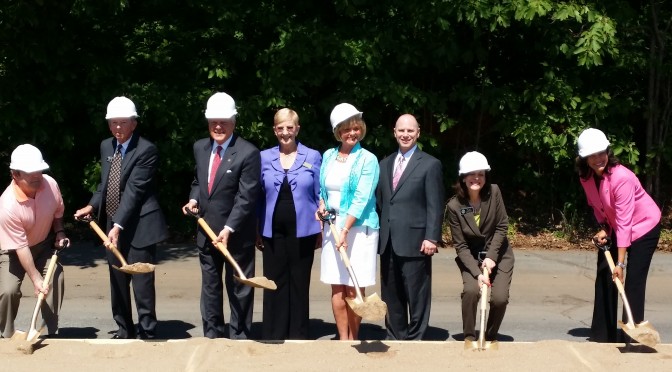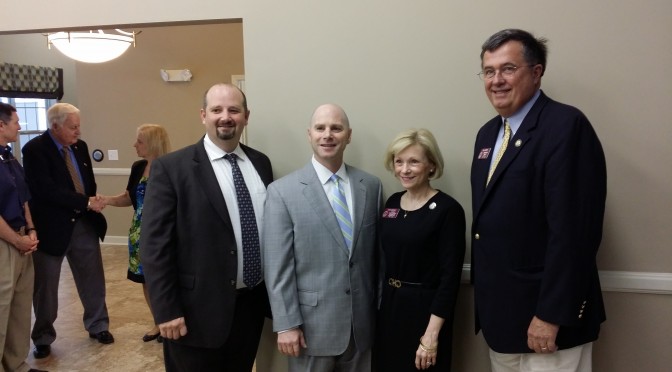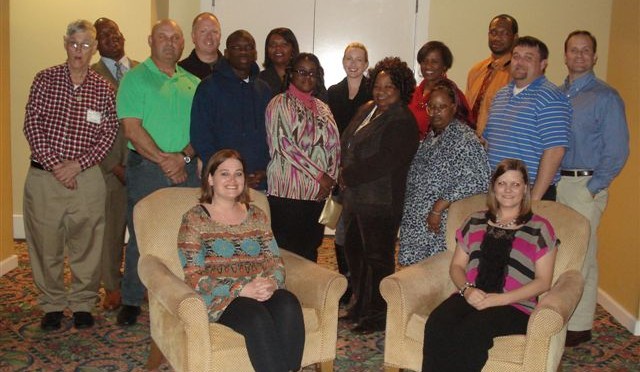On May 6, the Cobb Community Service Board (CSB) broke ground on a new behavioral health crisis center in Marietta. The center is expected to open by spring of 2015 and will provide easier access to high-quality services for Cobb and Douglas county residents. The center will offer 24/7 walk-in treatment and will house 24 stabilization beds, 4 transition-level beds and a 23-hour observation program.
The new center is part of Georgia’s increased focus on community-based behavioral health services. The addition of the Cobb crisis center and others across the state reflects the department’s commitment to serving people close to their homes and in the least restrictive setting possible. The facility will be supported by a $5.2 million annual investment from DBHDD.
“Thanks to funding provided for by Georgia’s Department of Behavioral Health and Developmental Disabilities, the Cobb CSB’s new center will serve thousands of citizens in immediate need of mental health and/or addiction treatment services,” said Cobb CSB executive director Tod Citron.
Governor Nathan Deal and Cobb Commission Chairman Tim Lee joined DBHDD Commissioner Berry at the groundbreaking ceremony held at 1775 County Services Parkway in Marietta.
The Cobb and Douglas Community Service Boards provide mental health, developmental disability and substance abuse services to approximately 10,000 residents of Cobb and Douglas counties annually. For services call the Access Center at 770-422-0202.


